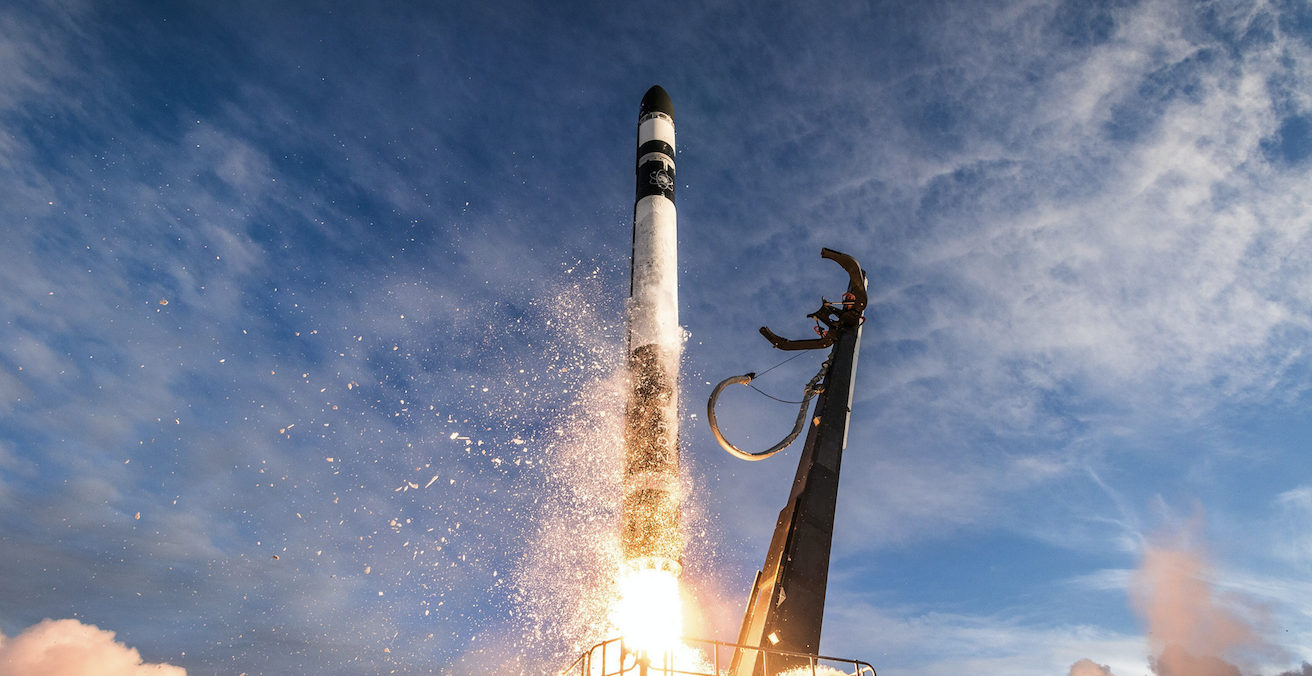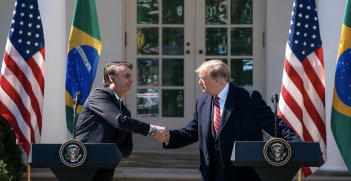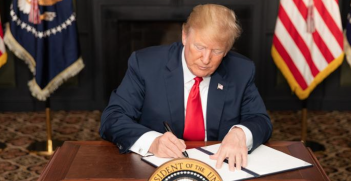The Trump Administration and Outer Space: Promoting US Leadership or Heading Towards Isolation?

The Trump administration has been vocal on the pursuit of US leadership and private enterprise in space. However, whether its “America first” policies will deliver on this rhetoric or lead it into an isolationist blackhole remains to be seen.
In a relatively short period of time, the Trump administration has been fairly active in the field of space. The reconstitution of the National Space Council, under the direction of Vice President Mike Pence, the President’s signing of Space Policy Directive 1, that calls for the return of humans to the Moon, and the announcement of a National Space Strategy that calls for an “America first” approach in space, have been the highlights of this process. A key component of the administration’s approach has been the promotion of commercial space activities through an effort of regulatory reform intended to facilitate free enterprise and individual initiative in space.
Overall, it’s evident that the Trump administration views a consolidated US leadership in space as instrumental to “make America great again.” However, due to the lack of cohesion in the management of the US space program, the controversial interpretation of international principles and the US-centred view of space endorsed by the administration, doubts remain as to whether the space policy of the Trump administration will foster US leadership in space or lead to its progressive isolation.
Positive aspects of the Trump administration’s space policy
The Trump administration views a combined effort between governmental and non-governmental entities as the key element to maintain and strengthen US leadership in space in the twenty-first century. Accordingly, while NASA should concentrate its work on the exploration of the solar system, the private sector should take over the responsibility to provide low Earth orbit transportation services and to develop the capabilities to undertake “new” activities beyond low Earth orbit. In order to implement this strategy, the administration is supporting a process of reorganisation of certain aspects of the US space program with the goal of attracting the broadest possible number of private entities to enter the sector. This process places great emphasis on making space ventures profitable from a business perspective. Having this objective in mind, a new regulatory framework for private space activities characterised by minimum limitations to the private freedom to explore and use outer space, limited licensing requirements, as well as a clear and speedy application process is being developed.
The fact the administration is directly involved at the highest level through the National Space Council in the management of the space program is an indication of its commitment towards strengthening US leadership in space.
Controversial aspects of the space policy of the Trump administration
It is important to point out the Trump administration has not formulated an official and comprehensive space policy yet. Elements of it have been disclosed by President Trump and Vice President Pence. However, a structured approach to space is still lacking. This fact marks a notable difference between the Trump and Obama administrations, as the latter issued a national space policy within the first year of President Barack Obama’s presidency. The absence of a structured national space policy creates uncertainty as to the overall strategy of the Trump administration in the space sector and complicates its implementation.
The novelty of the Directive is not as striking as it may look at first sight; as a matter of fact, it merely changes four paragraphs from the policy laid down during the Obama administration, and its goals are reminiscent of those laid down under the George W. Bush administration. Also, its feasibility is questionable; indeed, not only it does not include any specific timeframe to achieve the goals it sets, but it lacks any actual financial commitment to them.
The vagueness of the Directive negatively affects NASA. First of all, it calls NASA to engage in deep space exploration. Does this mean that NASA should completely abandon its more traditional low Earth orbit activities? And, if so, how should this transition be structured? What would be the consequences for the future of NASA and its organisation? Second, the implementation of the space exploration plans set by the Directive would require a significant increase in NASA’s budget. However, this does not seem to be the direction taken by the Administration so far; indeed, the FY 2019 budget request shows that NASA’s budget is largely similar to those of previous years, with only a slight 1.9 percent overall increase compared to FY 2018. Third, while the Directive requests NASA to collaborate with international partners it does not give any precise indication on how to do so.
Another area where the administration has been particularly active has been that of defence. Importantly, it is in relation to this area that questions related to the novelty, feasibility, and controversial nature of the approach taken by the administration, become relevant. For example, President Trump has referred to the possibility to establish a new “Space Force.” This is not an original idea of Trump as it has previously been voiced by Republicans in the Congress. Additionally, despite an attempt by the House Strategic Forces Sub-committee, the proposal to establish a “Space Force” was not included in the 2018 National Defense Authorization Act due to the opposition of the Pentagon and Air Force leaders. Therefore, the statements made by President Trump seem to lack any realistic chance to find any implementation, at least in the short term.
It is important to point out that the right of the United States, as of any other State, to defend its space objects is uncontroversial and fully established in international law. What remains controversial is how this right is exercised. Notably, the administration seems to be considering the option of placing weapons in outer space.
The United States should seriously assess the advantages and disadvantages associated with weaponising space. The disadvantages largely outweigh the advantages. Indeed, there are a number of reasons why the United States should refrain from placing weapons in outer space, including the fact such a move will: lead to the destabilisation of the strategic balance existing in outer space; urge China and Russia to react to the US move by placing weapons in orbit too; initiate a costly arms war in space; endanger the overall security of space objects, including American ones; and possibly lead to conflict in space.
There are also concerns related to the draft bill American Space Commerce Free Enterprise Act. The bill includes controversial interpretation of space law principles, including: the right of US citizens to explore and use outer space, including its resources, without conditions; the idea that not all the provisions of the Outer Space Treaty (OST) are imputable upon US private entities; and the rejection of the “global commons” nature of outer space. This interpretation apparently contradicts the terms of Article VI of the OST. US private space activities are inherently “conditioned” by the requirements set in Article VI of the OST, according to which such activities need to be approved and controlled by an appropriate State. The OST is crystal clear in establishing that national activities in outer space, including those of non-governmental entities, shall be consistent with all the provision of the OST, not just a few of them selected by individual States. Also, the claim that outer space is not a global commons is unacceptable. Such an interpretation derives from a line of thought that argues outer space is not a common or a public good but a geographical area where property rights could be extended and activities should be governed by national licensing regimes rather than international rules. Such a view does not find justification in the negotiations of the OST or its main text. Even though the OST never formally says so, the global commons nature of outer space was one of the first space law principles ever agreed upon and has been widely recognised.
Overall, one may wonder whether the space policy of the Trump administration runs the risk of progressively isolating the United States rather than solidifying its leadership position in space.
Dr Fabio Tronchetti is co-director of the Institute of Space Law and Strategy and Zhuoyue associate professor at Beihang University, Beijing. He also holds the position of Adjunct Professor of Comparative National Space Law at the School of Law of the University of Mississippi.
Dr Hao Liu, associate professor of law, works as deputy director of the National Research Center of ATM Law and Standard of China, and is the director of the Institute of Aviation Law and Stand, Beihang University. In the ICAO/UNOOSA Space Learning Group, he is chairing the sub-Legal Group.
This article is an extract from Tronchetti and Liu’s article in Volume 72, Issue 5 of the Australian Journal of International Affairs titled “The Trump administration and outer space: promoting US leadership or heading towards isolation?” It is republished with permission.





